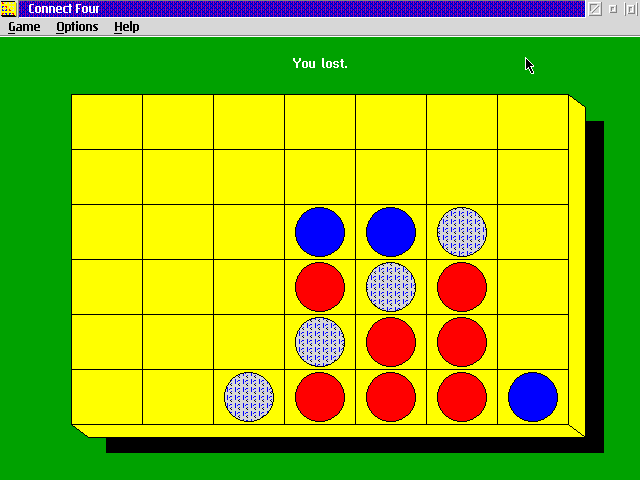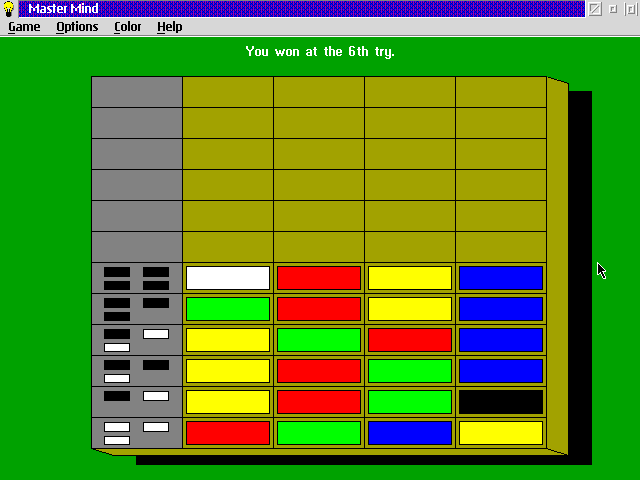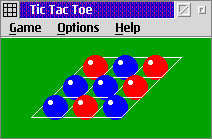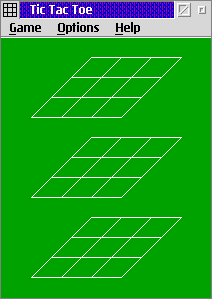OS/2 parlour games by Peter Wansch
Continuing in the grand tradition of this blog, I've let time pass me by for a while with no updates. I've not been idle, though.
Recently, MobyGames started accepting OS/2 games, so I've been spending a bit of time looking at old freeware titles for OS/2. There are an absolutely shocking number of parlour games for that platform! Here's a quick look at a few I've added to MobyGames lately, all by Peter Wansch.

First, Connect Four. It's a straightforward implementation of the Milton Bradley game. You can see me losing, above.

Second, Master Mind. Pretty straightforward as well, though this one does offer a Beginner difficulty, on which the four colors chosen must be distinct.

Finally (and still pending approval, just now), Tic Tac Toe. This one is more interesting, because in addition to the regular 3x3 game board you see above, you can play on 3x3x3 or 4x4x4 boards.

Pretty cool! Not exactly a new idea, of course. In 1978 alone, MobyGames lists two different games called "3-D Tic-Tac-Toe" and one called "Qubic", which is a translation of the board game of the same name--a 4x4x4 version of Tic Tac Toe. Even if it's not novel, it's still more fun than playing the 3x3 game to a draw a hundred times.
All three of these were released in a compilation of games made OS/2 2.0 and above, Entertainment Pack for OS/2, and some of them (including these three) seem to have had separate releases of updated versions.
There's one big flaw with these games: they're single player only! I can't understand why Wansch didn't just let you turn off the AI and play with a friend. I mean, I realize that Master Mind is really better off as a single player game, but the other two are perfect for multiplayer games.
Wansch may have contributed a couple of dozen parlour games to OS/2 by himself, but there are many more. I haven't really explored the available games in depth, but it looks to me like OS/2 has a much higher proportion of parlour games than, for example, Windows 3.1. I wonder why.
It's not all checkers and Parcheesi, though. I'll get some reviews of the more interesting games up, once I've added them to MobyGames. It'll be a nice break--it's surprisingly exhausting writing descriptions for simple games. I dread writing yet another explanation of how Tetris or Conway's Game of Life works.
These games can be downloaded from this page, if you're interested. Of course, you'd probably spend more time getting OS/2 installed than playing the games, so caveat ludor.